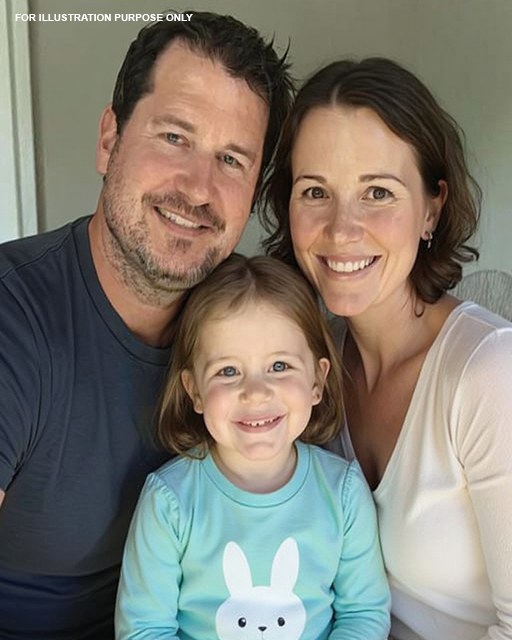When I asked my daughter who she wanted to invite to her fifth birthday party, I expected the usual: preschool friends, maybe our neighbors’ twins, and of course her grandparents. Instead, she named someone I didn’t recognize, and my stomach dropped.
“Mommy,” she said, spinning a pink crayon between her fingers, “can we invite the lady who comes to see Daddy when you’re at work? She’s really nice. She brings me juice sometimes.”
The crayon slipped from her hand. I froze, trying to process her words.
“The lady who… visits Daddy?” I asked carefully, my voice trembling just slightly.
She nodded, matter-of-factly. “Uh-huh. She has pretty hair and sparkly shoes. She sits with Daddy on the couch, and sometimes they laugh really loud.”
My heart pounded. I gripped the edge of the table. “Sweetheart, what’s her name?”
She furrowed her brows. “I think it’s… Layla. Daddy calls her Layla.”
Layla. The name sounded like a warning bell in my ears. I forced a smile for her sake and shifted the conversation quickly, but the rest of the day, my daughter’s innocent words kept echoing, shattering the fragile calm I’d lived with.
Josh had always seemed steady, dependable. Remote work gave him freedom while I managed my marketing team downtown. We’d been together eight years, married six, and though we argued occasionally about chores, spending, or long hours, nothing could have prepared me for this.
That night, as I tucked my daughter in, she asked again about Layla attending her party. “She makes Daddy happy,” she murmured, sleepy. “It would be fun if she came too.”
I kissed her forehead, promised we’d talk later, then descended the stairs, each step heavy with dread.
Josh lounged on the couch, phone glowing. I wanted to scream, to demand the truth, but my daughter’s words echoed: She makes Daddy happy.
I sat down and asked casually, “How was your day?”
“Fine. Worked, then spent time with Mia,” he said without looking up. A lie hung between us, thick and suffocating.
Over the next week, I watched him, tracked his movements, noted every glance at his phone, every unusual absence. One Wednesday, I left work early, nerves frayed, heart racing. My daughter was at preschool—if Layla was real, she would be here.
Stepping quietly through the front door, I froze at the sound of laughter—a woman’s laugh—from the living room.
There they were: Josh on the couch, his hand resting on a woman’s knee. Layla. Chestnut hair, a faintly shimmering blouse, sparkly shoes—exactly as my daughter described. My stomach lurched.
“Josh,” I said, voice low and sharp.
They jumped. “This… this isn’t what it looks like,” Josh stammered. She straightened, gripping her bag.
I laughed bitterly. “Really? Because it looks exactly like it.”
She murmured, “I should go,” and stepped past me. I called out, “You’re Layla, right?” She nodded quietly.
Chaos followed. Josh admitted it had been “a few months,” insisted it wasn’t serious. I reminded him that our five-year-old knew her name, her shoes—our child had seen their connection. Words faltered between us, heavy with betrayal.
I couldn’t stop thinking about Layla. She wasn’t cruel, she wasn’t gloating—just quietly present, part of my daughter’s life. Later, I learned the truth: Layla had been misled by Josh, believing he was separated, that she wouldn’t harm a child knowingly.
Two weeks later, divorce papers were filed. Months after, I saw Layla in a café. She apologized sincerely. I told her: she hadn’t made vows, but she was part of the damage. I couldn’t hate her.
This year, my daughter turned six. Her birthday list contained friends, family, neighbors’ twins—no mention of Layla. Sometimes, though, her thoughtful gaze reminds me that children notice more than we realize.
My marriage ended, but life continued. Betrayal doesn’t always wear a villain’s face—sometimes it comes with sparkly shoes. And my daughter’s innocent words revealed truths I might never have uncovered otherwise.
